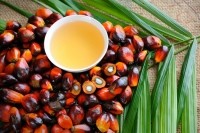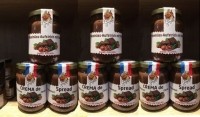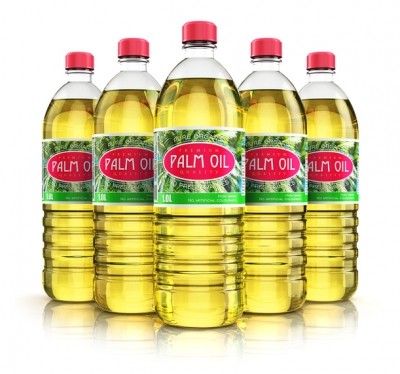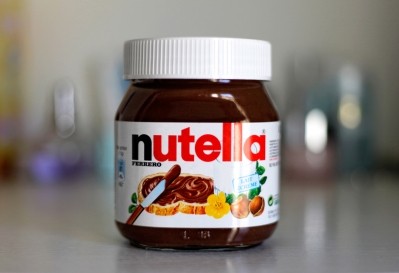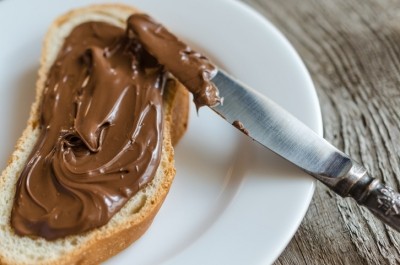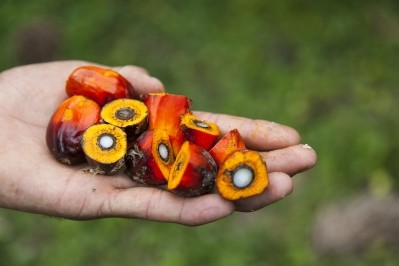Ferrero defends palm oil in Nutella with advert against 'unfair smear campaign'
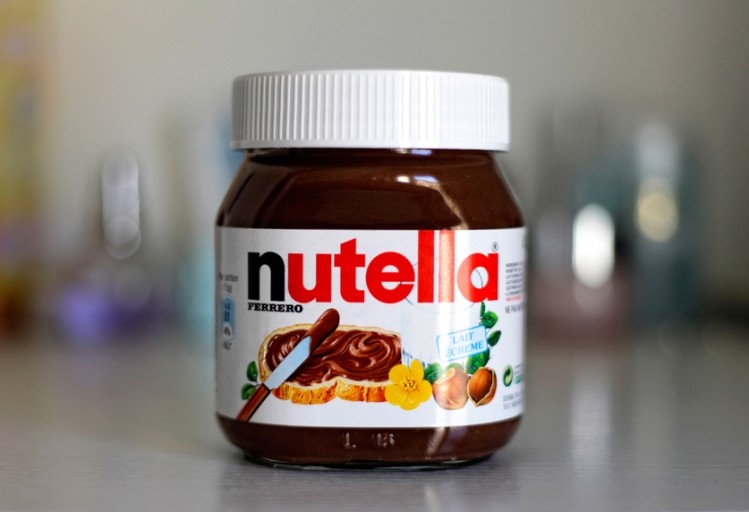
Ferrero's purchasing manager Vincenzo Tapella appears in the advert. He says: “Like all quality vegetable oils, our palm oil is safe. It comes from freshly pressed and sustainably sourced fruits, and has been processed at controlled temperatures. Perfect for enhancing the taste of our products and making them so creamy.”
The advert marks the company's 70th anniversary in Italy and was broadcast on Italian television, print and digital in November 2016. Ferrero said it had no plans to extend the campaign beyond Italy for the moment.
Ferrero’s campaign comes as negative publicity surrounding palm oil gains momentum in Italy and elsewhere but the company confirmed that Italian sales of Nutella increased in the last quarter of 2016.
'Smear campaign'
A spokesperson told FoodNavigator: "The advert is aimed to celebrate the 70 years of our company and details our passion for quality in selecting and combining the best ingredients. Palm oil is one of our key ingredients. It is relatively unknown in Italy and it is suffering an unfair smear campaign."
Ferrero uses palm oil due its versatility for a range of food products, high stability and long shelf-life. It also does not need to be hydrogenised, a process which results in harmful trans fats, the spokesperson said.
Earlier this year the European Food Safety Authority (EFSA) published an opinion on the carcinogenic contaminants 3- and 2-monochloropropanediol (MCPD), their fatty acid esters as well as glycidyl fatty acid esters (GE) found in processed vegetable oils. Levels are especially high in palm oil, and the opinion found the average intake of infants and children is above the tolerable daily intake.
Italy's consumer group Altroconsumo launched a petition in June last year calling for stronger regulation to limit the contaminant’s presence in food, and has received over 10,000 signatures to date.
Nutella has also been the focus of a negative publicity campaign in France launched by consumer rights group UFC-QueChoisir, and a growing number of products on the market are making on-pack claims of bring palm oil-free.
From red fat to clear oil: How is palm oil processed?
Crude palm oil is a bright orange-red colour. In order to transform it into an oil that can be used by the food industry it undergoes three stages.
First it is degummed - the gum and fatty acid in crude palm oil and crude palm kernel oil are separated and impurities such as trace minerals, copper and iron are removed by using phosphoric acid.
It is then bleached using bentonite calcium to remove colour pigments and other impurities.
Finally it is deodorised to remove the taste and smell by steaming it at high temperatures of between 240°C to 260°C before being cooled to room temperature.
(Source: Wilmar International)
The contaminants, recognised as being probably genotoxic and carcinogenic by the United Nation's International Agency for Research on Cancer (IARC), appear during processing and can be reduced by adapting the production process.
The Ferrero spokesperson said: "For years we have requested our suppliers to provide palm oil [...] that contains low levels of contaminants, which is obtainable when the raw material has a low acidity level - thanks to a very meticulous harvesting conducted in the least time possible before being processed - and is subjected to specific processing and production techniques [regarding] timings and temperatures.
"The oils and fats consequently have significantly lower levels of contaminants than the standard ones available on the market."
Although there is no EFSA-backed safe level due to a lack of toxicological data, the Parma-based food safety authority set a tolerable daily intake (TDI) of 0.8 micrograms per kilogram of body weight per day for 3-MCPD and its fatty acid esters.
Pressure mounting on Commission
The advertising campaign also comes as European politicians pressure the Commission into taking action on the contaminants in vegetable oils.
In a written question tabled last Friday (6 January), the group of over 60 MEPs say: “Although levels of glycidyl fatty acid esters in palm oils and fats have halved in the past six years, palm oil remains the biggest contributor for most individuals. Present in snacks, biscuits, bread sticks, crackers and dozens of other foods and children’s foods, palm oil is a potential health concern especially for children and young people, as well as for all those who consume foods rich in palm fatty acids.”
They ask: “Can the Commission state whether it intends to adopt regulatory measures to limit the presence of risky compounds in palm oils, in order to protect human health?"
Health and food safety commissioner Vytenis Andriukaitis responded to a similar written question last November, saying the Commission planned to present by the end of the year strict regulatory measures to limit the contaminants to the Standing Committee on Plants, Animals, Food and Feed.
According to a report by Europe Economics, commissioned by the Malaysian Palm Oil Council, EU member state Italy imported the second largest quantity of palm oil in 2012, at 992,000 tonnes. The Netherlands was number one with 1.3 million tonnes.
